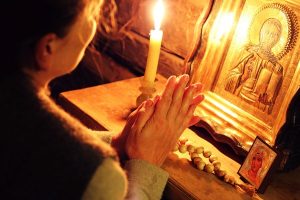Let nothing be done through strife or vainglory; but in lowliness of mind let each esteem others better than themselves.
—Philippians 2:3
 Before Gregory the Great came up with the list known as the seven deadly sins, John Cassian wrote of the eight vices, the seventh of which is the vice of self-esteem. This is a sin that is no longer considered to be a sin by many. Although narcissism is still considered (by most) to be wrong, this younger brother of self-love is very popular. Modern education theory places a tremendous emphasis on increasing a child’s self-esteem, almost as much as teaching him about the newfound virtue of tolerance. Hence, we are told that we must be careful not to damage a child’s self-esteem by giving him a failing grade, even if it is deserved, because he might come to realize that he is not as good as he thinks he is. For some reason the proponents of such ideas think it is more important to have an inordinately high regard for oneself than a proper one. Self-respect and a proper sense of self-worth are not sins, but holding oneself in high esteem is.
Before Gregory the Great came up with the list known as the seven deadly sins, John Cassian wrote of the eight vices, the seventh of which is the vice of self-esteem. This is a sin that is no longer considered to be a sin by many. Although narcissism is still considered (by most) to be wrong, this younger brother of self-love is very popular. Modern education theory places a tremendous emphasis on increasing a child’s self-esteem, almost as much as teaching him about the newfound virtue of tolerance. Hence, we are told that we must be careful not to damage a child’s self-esteem by giving him a failing grade, even if it is deserved, because he might come to realize that he is not as good as he thinks he is. For some reason the proponents of such ideas think it is more important to have an inordinately high regard for oneself than a proper one. Self-respect and a proper sense of self-worth are not sins, but holding oneself in high esteem is.
This sin is ubiquitous and difficult to master. In his Institutes Cassian wrote:
The vice of self-esteem is difficult to fight against because it has many forms and appears in all our activities—in our way of speaking, in what we say and in our silences, at work, in vigils and fasts, in prayer and rewarding, in stillness and long-suffering. Through all these things it seeks to strike down the soldier of Christ. When it cannot seduce a man with extravagant clothes, it tries to tempt him by means of shabby ones. When it cannot flatter him with honor, it inflates him by causing him to endure what seems to be dishonor. When it cannot persuade him to feel proud of his display of eloquence, it entices him through silence into thinking he has achieved stillness. When it cannot puff him up with the thought of his luxurious table, it lures him into fasting for the sake of praise. In short, every task, every activity, gives this malicious demon a chance for battle.
The word Cassian uses for self-esteem (kenodoxia in Greek) is rendered as vainglory in the King James translation of the Scriptures. Whereas the word orthodoxy can mean “right glory,” a literal translation of the Greek word kenodoxia might be “empty glory.” It carries with it the senses of vanity, conceit, and excessive ambition. It is different from pride—Cassian’s eighth vice. He describes this last sin as “an evil beast that is most savage and more dreadful than all the former ones.”
Having an inflated sense of self-importance can be a struggle for traditionalists and leaders. Those who see the world running away from God begin to think they are the only faithful ones remaining—the few, the proud, the spiritual marines. Similarly, for those whom God uses to speak to his people, it can be hard not to see themselves as being special—just like that great prophet, Balaam’s ass.
Whether adults or children, we all struggle with this sin. I remember when my children thought that they were each the center of the universe. Child psychologists tell us that all children go through this stage. But perhaps some do not do so well at growing beyond it.
In his Epistle to the Galatians, the Apostle Paul wrote: “If we live in the Spirit, let us also walk in the Spirit. Let us not be desirous of vainglory, provoking one another, envying one another. . . . For if a man thinks himself to be something, when he is nothing, he deceives himself.”
Thomas S. Buchanan is a member of the Orthodox Church and lives in Chester County, Pennsylvania, with his wife and three children.

















